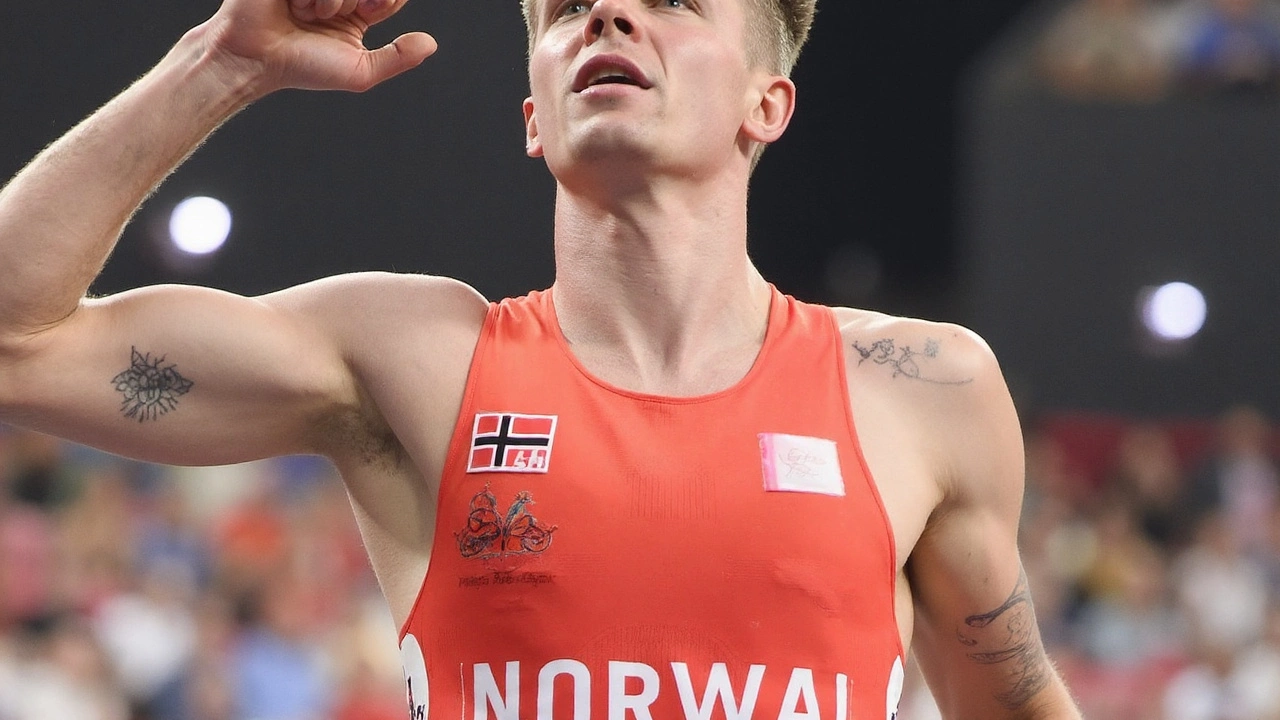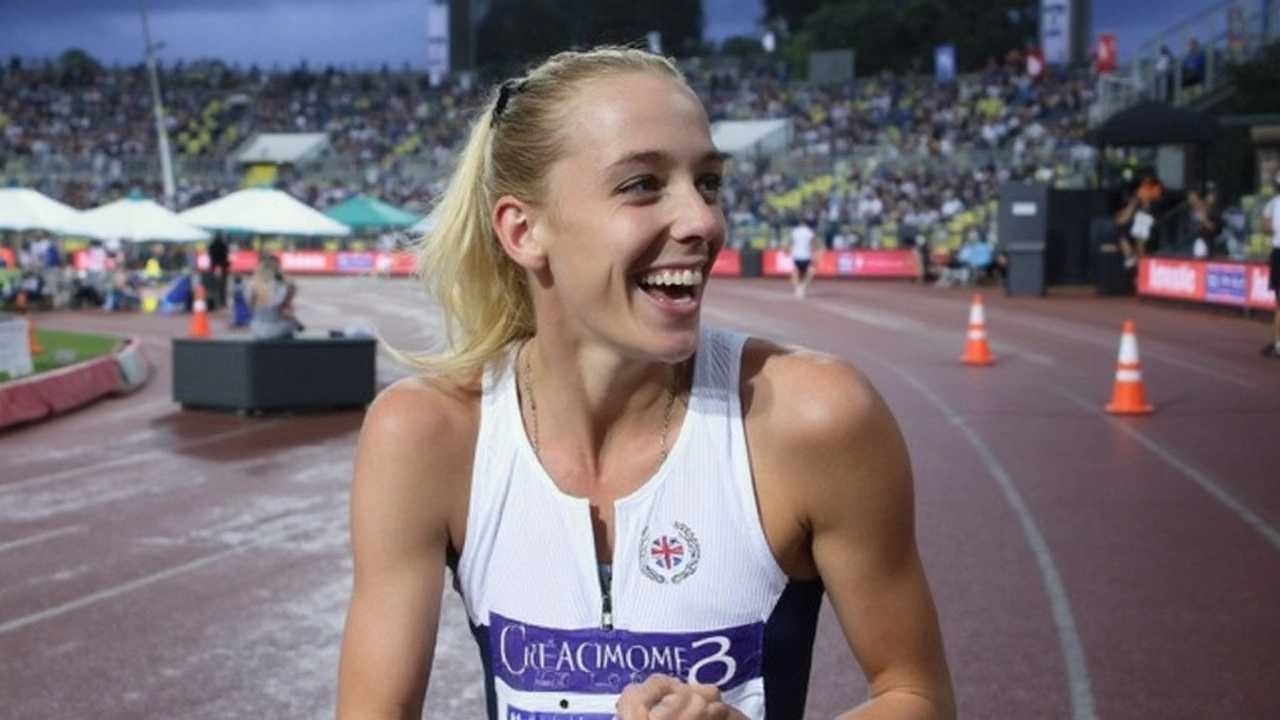The spotlight in Tokyo is split in two: can Great Britain and Northern Ireland land a top‑eight finish on the medal table, and how will a world‑first sex eligibility test shape the narrative? The stakes are high at the World Athletics Championships, and so are expectations around Team GB’s middle‑distance stars, the relay squads, and a pole vaulter on a redemption arc.
Targets and medal prospects
UK Athletics hasn’t set a hard medal count, but the brief is clear: finish inside the top eight and put every relay team in the hunt for a podium. That target usually takes multiple medals across track and field and solid relay conversions. It’s ambitious, not reckless, and it hinges on proven performers delivering when it matters.
Keely Hodgkinson is the headline act. The women’s 800m final has been placed as the last race on the last day for a reason: it’s the hottest ticket in town. Hodgkinson, the Olympic champion, has ridden out hamstring trouble and returned to form at pace. She’s sharp over the first lap, disciplined in the second, and she knows how to handle a late kick. Is this the moment she goes after the world record? Maybe not by design, but if the race breaks her way—steady early, brutal late—don’t rule out a swing at history.
Alongside her is Georgia Hunter-Bell, a friend, training partner, and part of the same setup led by husband-and-wife coaches Jenny Meadows and Trevor Painter. Hunter-Bell has been consistent, tactically tidy, and dangerous in traffic. If the final gets choppy and tense, that calm could buy her a medal chance into the final 80 meters.
On the men’s side, Josh Kerr arrives with the swagger that comes with defending a world title. He won the 1500m in 2023 and has leaned into what he does best: sit tight, keep contact, and trust the last lap. The field is always deep at this distance and the margins are tiny, but Kerr’s buildup has been steady rather than flashy. That often pays off in championship running, where races are more about choices than splits.
Don’t sleep on the pole vault either. Molly Caudery owns a 2024 World Indoor title and a Diamond League win in Doha. Last summer’s stumble—missing the Olympic final—still stings, but the jumpers who thrive long-term are the ones who take a hard lesson and channel it. Caudery’s runway rhythm and take‑off timing have both sharpened this season. If she clears an early bar cleanly, expect her to be in gold medal conversations under the lights.
Relays could decide whether Team GB reaches the top‑eight target. The men’s and women’s 4x100m squads are deep in options, while the 4x400m groups—men, women, and mixed—bring range and experience. Baton practice has been relentless, and the selection group has focused on clean exchanges over headline names. In a championship setting, that call is usually right. A single fumbled pass can erase a season’s work; a smooth set of exchanges can turn near misses into medals.
Conditions will be a factor. Tokyo’s late summer is warm and humid, and those who manage heat and recovery best will last the distance. The timetable leans into evening finals, but call‑room waits can still drain energy. Expect more ice vests, more sodium in drinks, and more conservative warm‑ups. The National Stadium has hosted this pressure before. It rewards athletes who keep their heads and stick to their race plans.

New sex eligibility test: what changes and why it matters
For the first time at a global championships, the sport is rolling out a standardized sex eligibility verification process. It’s been billed as a world‑first step to make checks consistent, less invasive, and clearly governed. This isn’t blanket testing. It’s a targeted, step‑by‑step protocol that applies only when questions arise under existing category rules.
Here’s the broad shape. Athletes start with documentation checks and medical evidence they already hold—no fishing expeditions, no tests without cause. If more is needed, the process moves in stages and is handled by an independent medical panel with expertise in endocrinology and genetics. Any lab work follows strict chain‑of‑custody rules. Privacy is central: results are confidential, data access is limited, and there’s a defined appeal route if an athlete disputes a finding.
This sits alongside World Athletics’ existing rulebook. Athletes with certain differences of sex development (DSD) face eligibility requirements in the female category, often related to testosterone thresholds and timelines for compliance. The federation also tightened transgender eligibility in 2023, limiting participation in the female category. The new protocol doesn’t change those policies; it’s a framework for how eligibility questions are handled, with clearer steps and safeguards.
Supporters say this could reduce ad‑hoc decisions, speed up timelines, and avoid last‑minute disruption. Critics worry about unintended consequences: privacy risks, the potential for stigma, and the pressure athletes may feel if a case becomes public. Organisers in Tokyo have tried to pre‑empt that by running team briefings, publishing a procedural outline, and designating a single point of contact for each federation, so any case moves quickly and quietly. The balance they’re chasing is simple on paper and hard in practice: fairness in competition while protecting athlete dignity.
Will it affect the racing? In most events, probably not. The protocol is designed to sit in the background and only surface when triggered. But its presence is significant. Athletics has lived through messy, very public disputes over eligibility. A clear, consistent process—used sparingly and explained properly—could take oxygen out of those flashpoints and keep the focus on the track.
So what should fans circle on the schedule? A few anchors stand out:
- Women’s 800m final: the championship’s closing act, with Keely Hodgkinson front and center and Georgia Hunter-Bell in the slipstream.
- Men’s 1500m final: Josh Kerr brings the belt; the field brings chaos. Tactics will decide medals.
- Women’s pole vault final: Molly Caudery’s clean early jumps would put pressure on the bar count late.
- Relay finals: all weekend drama—small mistakes punished, bold selections rewarded.
If Team GB are to land their top‑eight goal, it likely takes a handful of medals across these touchpoints and at least one standout relay performance. The margins will be thin. That’s championship sport: half a stride in an 800m, a toe on the line in a 1500m heat, a fraction off the take‑off in the vault, a baton catch an inch too high. Convert those moments, and the table takes care of itself.
